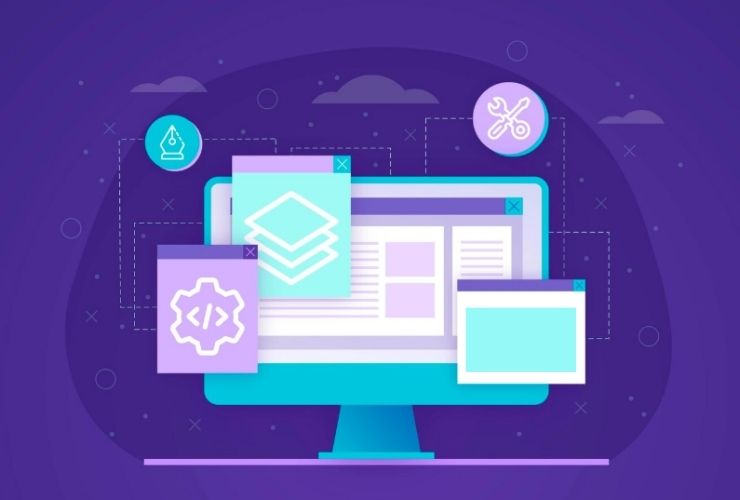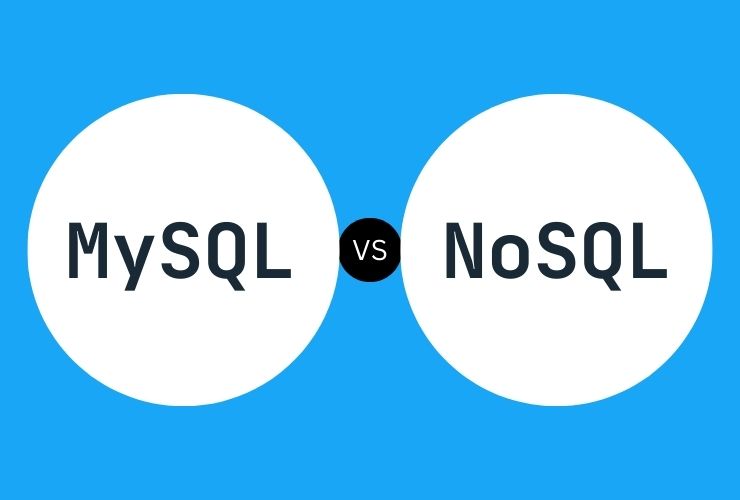It’s a leading PHP framework renowned for easy development with its elegant syntax, the robust features, and the whole ecosystem. From developing a simple website to complex enterprise applications, Laravel increases productivity and makes the workflow smoother. How does Laravel achieve faster and more efficient web development is discussed below:
1. MVC Architecture for Clear Code Structure
Laravel follows the Model-View-Controller (MVC) design pattern, which divides application logic into three distinct parts:
- Model: Handles data management and business logic.
- View: Manages the UI and presentation.
- Controller: Acts as the intermediary between the model and view, processing user input and rendering the response.
This separation of concerns makes code easier to maintain, modular, and scalable. Developers can work on different aspects of the application without affecting other parts, which enhances collaboration and code clarity.
2. Built-in Authentication and Authorization
Laravel provides easy and straightforward authentication and authorization out of the box. It also includes user registration: Quickly create user registration forms and manage user data.
- Login System: Add login functionality with minimal work.
- Password Reset: Built-in solutions for safe password recovery management.
- Role-Based Access: Assign roles and control user access to different sections of your application.
These ready-made features save developers a lot of time so they can focus on the creation of unique parts of their app while maintaining adequate security measures.
3. Eloquent ORM for Database Management
Laravel’s Eloquent ORM, or Object-Relational Mapping, makes database management much easier by allowing developers to interface with databases using PHP syntax instead of complex SQL queries. Eloquent allows developers to do the following:
- Specify relationships between models, like one-to-many and many-to-many.
- Run database queries with simple, readable PHP code.
- Retrieval and manipulation of data is also more efficient.
Eloquent reduces the development time for developers as it simplifies data interaction, making the handling of relationships and CRUD operations easier.
4. Blade Templating Engine
The Blade templating engine is a dynamic view with minimum code. Blade is:
- Simple: It allows clean integration of PHP into HTML, keeping the codebase tidy.
- Reusable: Blade views are extensible and can be reused all over the application.
- Flexible: Blade supports loops, conditionals, and custom directives to make front-end development faster and more efficient.
By using Blade, developers can quickly build complex front-end layouts without repeating code, thus speeding up development.
5. Artisan Command-Line Tool
Laravel’s Artisan CLI is a handy tool that helps developers save time by automating everyday tasks. Here’s what it can do:
- Code Generation: Quickly create controllers, models, and migrations with simple commands, reducing manual effort.
- Database Migrations: Easily run, update, or roll back database changes.
- Task Scheduling: Automate routine tasks like sending emails, clearing caches, or generating reports.
Artisan makes development faster and more efficient by handling repetitive tasks, letting developers focus on building the main features of their applications.
6. Laravel Packages and Ecosystem
Laravel comes with a rich ecosystem and numerous pre-built packages that handle common functionalities, such as:
- Payment Integration: Use packages like Laravel Cashier for subscription management.
- API Authentication: Laravel Passport simplifies API authentication.
- Email & Notifications: Laravel provides packages for email handling and notifications.
- Image Processing: Easily integrate image manipulation with packages like Intervention Image.
These packages eliminate the need to write custom code for standard functionalities, accelerating development and reducing the chances of errors.
7. Routing and Middleware Simplified
Laravel simplifies routing and middleware so that developers can handle flexibility and control.
- Routing: Routes for different HTTP methods (GET, POST, PUT, DELETE) can be created with the syntax being clear and concise.
- Middleware: Introduces reusable logic for handling incoming requests, such as authentication, logging, or input validation.
8. Laravel Forge and Envoyer for Deployment
- Laravel Forge simplifies the process of deploying by including server management, setting up security, managing the configuration for Nginx and SSL certificates.
- Envoyer provides zero-downtime deployments so that developers can make pushes to production without causing service interruptions.
These tools reduce deployment complexities, enabling developers to focus on writing code rather than managing infrastructure.
9. Security Features
Laravel is built with security in mind, offering features such as:
- CSRF Protection: Automatically prevents cross-site request forgery attacks.
- Password Hashing: Uses modern hashing algorithms to secure user passwords.
- Encryption: Laravel provides built-in methods for securely encrypting sensitive data.
With these security features in place, Laravel minimizes the risk of security vulnerabilities and ensures web applications are safe from common attacks.
10. Comprehensive Testing Support
Laravel supports automated testing with PHPUnit, allowing developers to:
- Write and execute unit tests for individual components.
- Automate testing processes to catch bugs early.
- Simulate user interactions and database changes in testing environments.
By integrating testing into the development cycle, Laravel helps developers maintain high-quality code, detect errors early, and accelerate the debugging process.
11. Database Migrations for Smooth Changes
Laravel’s database migrations provide a structured way to modify the database schema, ensuring consistency across different environments. Features include:
- Version control for database changes: Track changes made to the database schema.
- Easy rollback: Revert database changes safely and quickly.
- Collaboration: Enable teams to work together on database changes without conflicting.
Migrations simplify the database management procedure and ensure that all individuals working on it remain in agreement. It, therefore reduces possible issues during deployment.
Conclusion
Laravel is a powerful PHP framework designed to make web development faster, more efficient, and less error-prone. With its elegant syntax, built-in features, automated tools, and rich ecosystem, Laravel empowers developers to create high-quality, scalable, and maintainable web applications quickly. Whether you’re working on a small website or a large-scale enterprise solution, Laravel provides the tools you need to streamline your development process, reduce manual tasks, and build robust applications faster.
Contact Us Today













 Database Development
Database Development












































